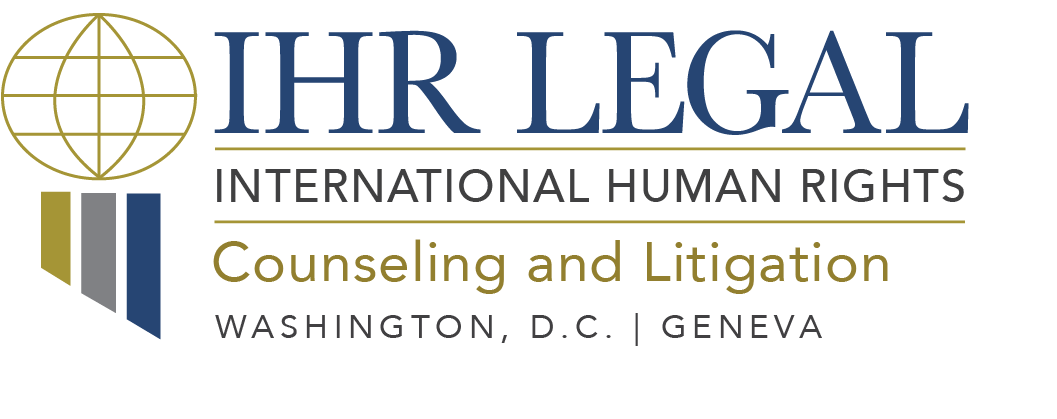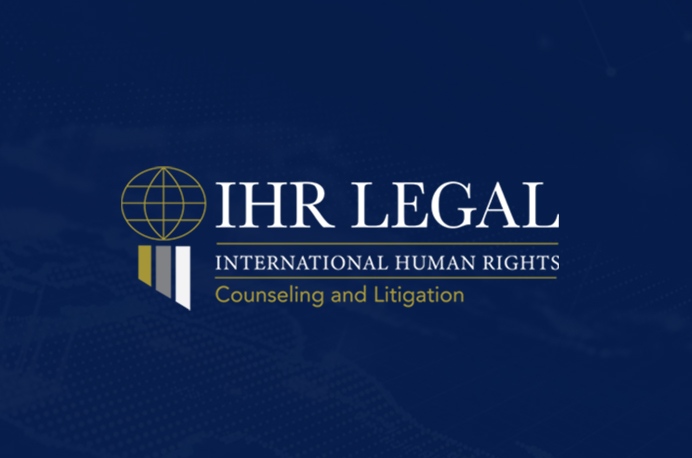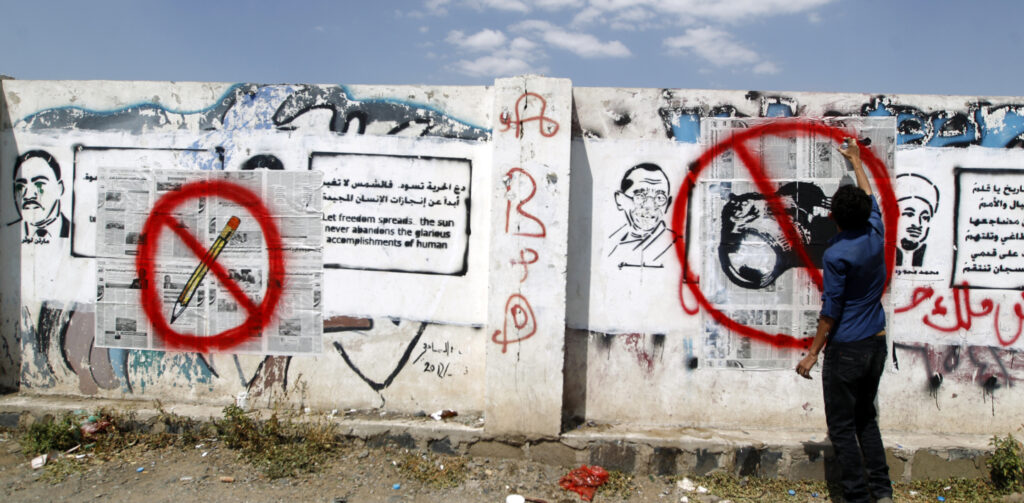
IHR LEGAL Newsletter
IHR LEGAL Newsletter
January – March 2023

In this issue:
Highlights of our latest newsletter
- On March 27, 2023, the OHCHR launched a new country report concerning freedom of expression in Yemen. The report covers a number of aspects related to freedom of expression in the country and presents quantitative data on violence suffered by journalists, individualization of cases of violence against the press, as well as formulation of various recommendations to the State, in the current context of conflict in Yemen driven by propaganda and misinformation.
- On March 21, 2023, the ACHPR published Resolution No. 550 on Business and Human Rights in Africa. On the basis of the rights to freely dispose of wealth and natural resources, to economic, social and cultural development, and to a generally satisfactory and development-friendly environment recognized in the African Charter, the ACHPR urged the African Union to take a series of measures to motivate States to apply a human rights-based approach to the implementation of national blue economy frameworks, among other measures.
-
On March 17, 2023, the ECtHR found that there has been a positive change in the prosecution of hate crimes against homosexual persons in Lithuania, and therefore did not find a violation of the right to an effective remedy in the case “Valaitis v. Lithuania”. The applicant, Mr. Jonas Valaitis, published an essay in which he mentioned a finalist of a television competition who had publicly declared himself to be gay. In response, several hateful comments against the gay community were published. Before the ECtHR, the applicant complained that the State had failed to take effective measures to protect gay persons from hate speech. Nonetheless, the ECtHR considered that there had been no discriminatory attitude on the part of the Lithuanian authorities and that although the preliminary investigation did not lead to the conviction of those responsible, there had been no violation of Article 13 of the ECHR, taken as a whole.
- On March 6, 2023, the IACHR elected its Board of Directors for 2023, being the second all-female Board of Directors in history and the first all-female Board of Directors from Central American and Caribbean countries. The Board of Directors is composed of the President, Commissioner Margarette May Macaulay of Jamaica, the Vice President, Commissioner Esmeralda Arosemena de Troitiño of Panama, and the Second Vice President, Commissioner Roberta Clarke of Barbados.
Access Previous Issues:
IHR LEGAL Newsletter October-December 2022
On July 7, 2022, the ECtHR ruled that Italian authorities did not respond with the requisite promptness and diligence in dealing with domestic violence in the case of “M.S. v. Italy”. The applicant, M.S., an Italian national, was assaulted, harassed, and threatened for years by her then-husband, D.P., for which reason she filed several complaints against him. However, the State authorities began to take measures late, for which reason the ECtHR held the State responsible for the period in which it did not take effective measures.
IHR LEGAL Newsletter July-September 2022
On July 7, 2022, the ECtHR ruled that Italian authorities did not respond with the requisite promptness and diligence in dealing with domestic violence in the case of “M.S. v. Italy”. The applicant, M.S., an Italian national, was assaulted, harassed, and threatened for years by her then-husband, D.P., for which reason she filed several complaints against him. However, the State authorities began to take measures late, for which reason the ECtHR held the State responsible for the period in which it did not take effective measures.
IHR LEGAL Newsletter – April – June 2022
HRC decision on violation of human rights of murdered protesters; ACHPR statement on terrorist attack in the Republic of Togo; ECtHR judgment in the Case “Taner Kılıç v. Turkey” for the arbitrary detention of one of the founders of Amnesty International Turkey; and much more.
IHR LEGAL Newsletter – January – March 2022
Statement by the UN High Commissioner for Human Rights, Michelle Bachellet, on Russia’s war crimes and serious violations of international humanitarian law and human rights in Ukraine; ECtHR ruling in the case “Karuyev v. Russia” for a criminal conviction for spitting at a portrait of Putin; IACHR pronouncement on detentions and prosecutions of participants of the July 2021 protests in Cuba; and much more here.
News concerning the universal system and regional systems for the promotion and protection of human rights
I. UNIVERSAL HUMAN RIGHTS SYSTEM
1. Office of the United Nations High Commissioner for Human Rights (OHCHR)
The OHCHR is the principal human rights entity of the United Nations. Its functions include promoting and protecting all human rights, helping to empower people, and developing a human rights perspective in all United Nations programs. The current United Nations High Commissioner for Human Rights is Mr. Volker Türk.
News from the OHCHR:
— On March 27, 2023, the OHCHR launched a new country report concerning freedom of expression in Yemen. In the report, the OHCHR recalled that the right to seek, receive and impart information and ideas of all kinds is guaranteed to all individuals, without distinction of any kind. In addition, the OHCHR affirmed that freedom of expression also includes a free, uncensored, and unhindered press and media, which are essential in society to ensure freedom of opinion and expression. Regarding Yemen specifically, the OHCHR pointed out that the ongoing conflict in the country has entered its ninth year due to conflict-driven propaganda and disinformation which led to ideological and socio-political conflicts throughout the country. In this sense, the parties to the conflict have characterized critical voices in society as foreign actors who want to threaten national security, which has directly delegitimized the work of journalists and even caused self-censorship. The consequences of this scenario were manifold: many of the journalists who wanted to maintain the integrity of their work left the country, women journalists suffered severe bullying on the internet, and threats, arbitrary arrests, enforced disappearances, and killings continued to be a constant reality in the country.
Image source: Amnesty International, “Yemen: Government must stop prosecution and harassment of journalists”, available at: https://www.amnesty.org/en/latest/news/2022/08/yemen-government-must-stop-prosecution-and-harassment-of-journalists/.
In light of these facts, the OHCHR made a quantitative survey of the violence suffered by journalists from May 2021 to December 2022, and the report presents all the results. Among them, 56 cases of violence against freedom of expression and the media were documented during this period, and the report provides some examples of cases of victims of the violations, describing the events. Lastly, the OHCHR made several recommendations to the State, including the need to immediately release journalists who had served their sentences, to publicly condemn all forms and incidents of attacks against journalists, and tackle impunity for perpetrators of human rights violations against journalists. The country report can be found here.
— On January 4, 2023, the OHCHR published the report “Support systems to ensure community inclusion of persons with disabilities, including as a means of building forward better after the coronavirus disease (COVID-19) pandemic”. The report covers several important issues, such as support and care systems as a pre-condition for disability inclusion, support, and care systems in the international human rights framework including in the Convention on the Rights of Persons with Disabilities, and a conceptual framework for gender-responsive and disability-inclusive support and care systems. The report recalls that support and care systems are indispensable for persons with disabilities to fully, actively, and meaningfully participate in society on an equal basis, with equal choices for all, and to live with dignity, autonomy, and independence. One of the reasons for publishing the report is that the pandemic of COVID-19 has accelerated debates regarding support and care systems, as there have been disproportionate deaths in psychiatric isolation and social care facilities, as well as school closures and lockdowns, which have brought into focus the importance of the role of community care and support for the well-being of people. The report provides a range of recommendations to the States, including the need to take steps towards adopting a life-cycle approach to the design of policies that recognize the multiple needs that people experience according to their specific realities, and the necessity that time-for-care, cash-for-care, and disability-inclusive services need to be based on human-rights based model of disability. The report can be found here.
2. Committee on the Elimination of Discrimination against Women (CEDAW)
The CEDAW is the United Nations body of independent experts that monitors the implementation of the Convention on the Elimination of All Forms of Discrimination against Women.
News from the CEDAW:
— On March 8, 2023, the CEDAW decided that, in failing to provide gender-sensitive drug dependence treatment, Russia violated women’s rights in the “Oksana Shpagina v. Russia” case. The author, Mrs. Oksana Shpagina, suffered from chronic drug use (opioids), chemical dependence, HIV, tuberculosis, and Hepatitis C. The author became pregnant in 2011 and decided to try to take care of her health to give birth to a healthy child. However, when she went to the doctor, he concretely stated that she was unable to have a healthy child and that, therefore, she should undergo an induced birth, which caused her extreme suffering, to the point that she wanted to commit suicide and relapsed into drug use. In addition, she experienced neglect regarding her condition during her pregnancy, such as a refusal to treat her in a rehabilitation clinic for drug users due to her pregnancy. On the other hand, the author was arrested twice for possessing drugs for her use, and on January 10, 2019, the author passed away.
The CEDAW found that the State violated Article 12 (obligation of State Parties to take measures to eliminate discrimination against women in the field of health care) of the Convention in light of recommendation No. 24 (1999) on women and health, since the author faced several barriers in accessing affordable, medically appropriate, and gender-sensitive drug dependence treatment and rehabilitation services when she was pregnant. On this occasion, the CEDAW noted that the needs and rights of women belonging to vulnerable and disadvantaged groups should be given special attention. That was not respected and guaranteed by the State. Furthermore, the CEDAW concluded that the State failed to take appropriate legal and policy measures to address discrimination against women in general, including the author. The decision can be found here and the press release here.
II. AFRICAN HUMAN RIGHTS SYSTEM
1. African Commission on Human and Peoples’ Rights (ACHPR)
The ACHPR is a quasi-jurisdictional body, within the framework of the African Union, whose main function is to protect and promote human and people´s rights in African countries. Among its functions are to process complaints from individuals or States about human rights violations committed by States in the region, and to receive periodic reports from States on the human rights situation in their country.
News from the ACHPR:
— On March 21, 2023, the ACHPR released Resolution No. 550 which addresses a major theme: Business and Human Rights in Africa. Initially, the ACHPR recalled the rights to freely dispose of wealth and natural resources; to economic, social, and cultural development; and a generally satisfactory environment favorable to development, established on Articles 21, 22, and 24 of the African Charter, respectively. The ACHPR also recalled goal 16 of the African Union’s Agenda 2063 which recognizes that businesses are essential in achieving all of Agenda 2063 objectives and that respect for human rights norms by business enterprises in the countries of operations is a prerequisite for sustainable development. In that sense, the ACHPR called on the African Union to take into account and appropriately reflect in updating and finalizing the African Union Policy Framework on Business and Human Rights and to update the African Regional Blue Economy Strategy which motivates States to implement a human-rights-based approach to development and the implementation of national blue economy frameworks. In its resolutive points, Resolution No. 550 decided, among others, to mainstream the issue of business and human rights, including sustainable oceans, into the agenda of its ordinary public sessions. Resolution No. 550 can be found here.
— On February 26, 2023, the ACHPR expressed its appreciation for South Sudan’s accession to various regional and international human rights treaties. The State of South Sudan accessioned to the following human rights treaties: i) the Protocol to the African Charter on Human and Peoples’ Rights on the Rights of Women in Africa (Maputo Protocol); ii) the International Covenant on Civil and Political Rights; iii) the International Covenant on Economic, Social and Cultural Rights; and iv) the Convention on the Rights of Persons with Disabilities and the Optional Protocol thereto.
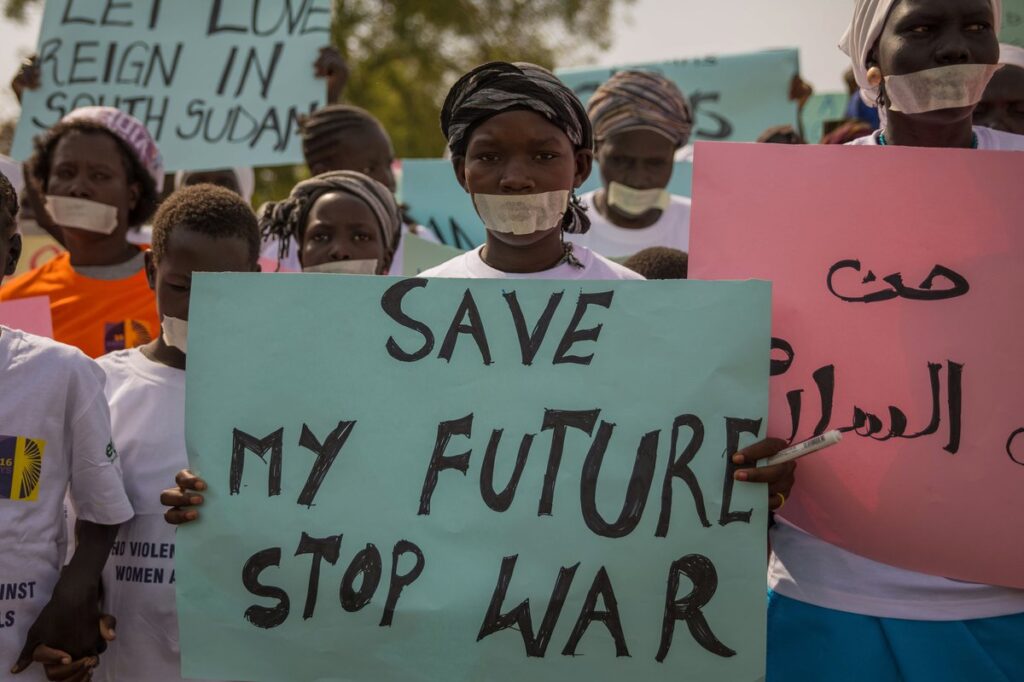
Image source: Africa Portal, “UN human rights report: Accountability long overdue in South Sudan”, available at: https://www.africaportal.org/features/un-human-rights-report-accountability-long-overdue-south-sudan/.
According to the ACHPR and Commissioner Solomon Ayele Dersso, Country Rapporteur for the Republic of South Sudan, the commendable step widens the legal framework for the promotion and protection of human and peoples’ rights in the Republic of South Sudan and is particularly significant because it gives recognition to the rights of categories of women and people living with disabilities. The press release can be found here.
III. EUROPEAN HUMAN RIGHTS SYSTEM
1. European Court of Human Rights (ECtHR)
The ECtHR is a judicial body of the Council of Europe whose main function is to monitor the compliance of States parties with the European Convention for the Protection of Human Rights and Fundamental Freedoms (ECHR). The ECtHR is responsible for analyzing complaints from individuals, groups of individuals, or States for human rights violations committed by States that have accepted the ECtHR’s jurisdiction.
News from the ECtHR:
— On February 2, 2023, the ECtHR found that the killing of a 15-year-old by law enforcement authorities that took place during the period of the “Gezi” events in Istanbul was not effectively investigated. In 2013 there was a development plan to build a shopping center in Gezi Park in Istanbul. However, due to its status as a green space, several protests took place, mostly led by environmentalists and local residents who opposed the removal of the park. These protests resulted in several confrontations with police authorities in different cities in Turkey.
The facts of the case are related to this period when a policeman from an elite squad known as “Zet” shot Berlin Elvan in the head as he was going to buy bread. With the shot received, the victim was in a coma for 269 days and died on March 11, 2014, from fractures in his skull that resulted in a cerebral hemorrhage. As a result of these events, the victim’s relatives took legal action to have the fatal event investigated and to hold the perpetrator accountable. Nevertheless, although individual actions and other proceedings were filed, there were numerous irregularities, such as the drop of charges of 42 police officers and the delay and obstruction of the investigation into the death.
Before the ECtHR, it was alleged the violation of Article 2 (right to life) of the ECHR arguing that the victim’s death was a result of a variety of factors, including the actions of two police officers who were on the “top of the police hierarchy”, director H.Ç. and governor H.A.M, and had the capacity as decision-makers. Consequently, the ECtHR found precisely that there was a violation of the mentioned right regarding the State’s procedural obligation to carry out an effective investigation regarding the possible participation of Director H.Ç. and Governor H.A.M in the murder of the victim. The press release can be found here.
— On January 17, 2023, the ECtHR held that there has been a positive change in the prosecution of hate crimes against homosexual persons in Lithuania, which is why it did not find a violation of the right to an effective remedy in the “Valatis v. Lithuania” case. On January 15, 2018, the applicant, Mr. Jonas Valaitis, published an essay in the newspaper Lrytas.lt, mentioning a finalist in the televised singing competition “The Voice”, who had publicly come out as a homosexual. In reply, twenty-one comments were posted, insulting both the applicant and homosexual people, to the point of suggesting that homosexuals should be burned in Auschwitz. Initially, authorities refused to initiate a criminal investigation into incitement to hatred and discrimination. Afterward, a criminal investigation was opened but then discontinued as the comments were considered to have been mostly one-off opinions not constituting a crime. However, after appeals and with the ECtHR’s ruling in Baizaras and Levickas v. Lithuania, in which violation was found in a very similar case and it was decided that hate speech against sexual minorities in the country had reached a critical level, the investigations were reopened. In the final deliberations of the case, some authors of the comments were identified but because they cooperated with the authorities, the criminal investigations stopped. Also, other authors were identified but there was not enough information to prove their guilt. In the end, the investigation was suspended for this and other factors.
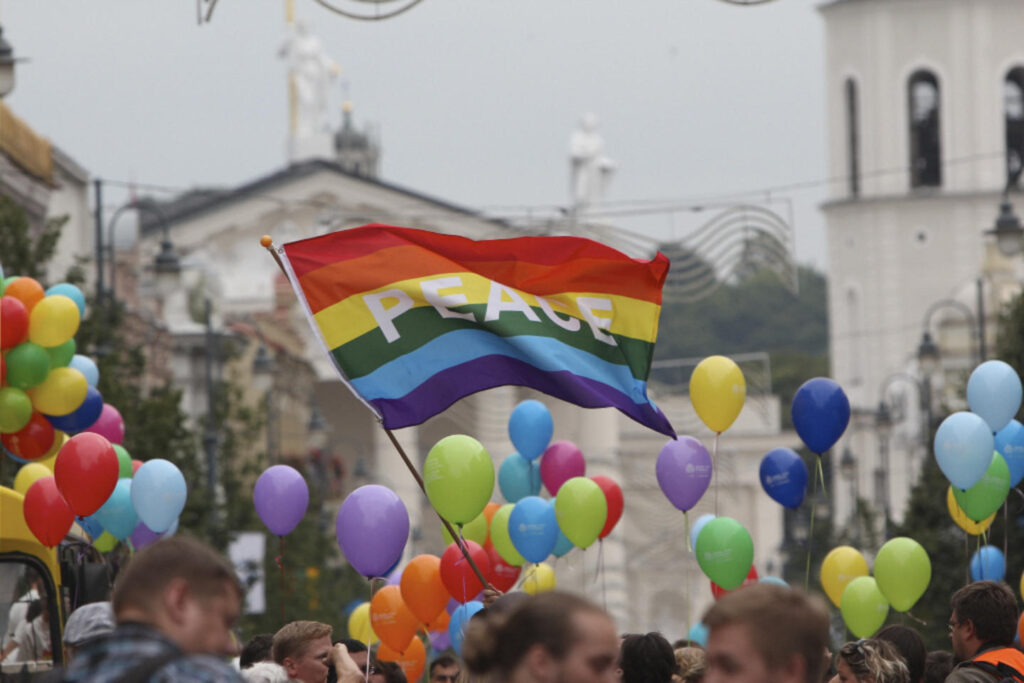
Image source: EEA Grants, “Fighting prejudice against LGBT in Lithuania”, available at: https://eeagrants.org/news/fighting-prejudice-against-lgbt-in-lithuania.
Before the ECtHR, Mr. Valaitis complained that the State had not taken effective measures to protect homosexual persons from hate speech, relying on Article 13 (right to an effective remedy) of the ECHR. Given this claim, the ECtHR found that, once the pre-trial investigation had been reopened, there had been no discernible discriminatory attitude on the part of any of the Lithuanian authorities. Consequently, the ECtHR considered that, although the reopening of the pre-trial investigation had not led to anyone who had written the hateful comments in question being charged or convicted, it had not, when considered as a whole, violated Article 13 of the ECHR. The press release can be found here.
IV. INTER-AMERICAN HUMAN RIGHTS SYSTEM
1. Inter-American Commission on Human Rights (IACHR)
The IACHR is the autonomous body of the Organization of American States (OAS) responsible for the promotion and protection of human rights in the Americas. One of its duties is to receive and review complaints from individuals about human rights violations and to monitor human rights situations.
News from the IACHR:
— On March 6, 2023, the IACHR elected its Board of Directors for 2023, being the second all-female board of directors in history and the first all-female board of directors from Central American and Caribbean countries. During the opening of its 186th period of sessions, held at the University of California, Los Angeles, the IACHR elected its Board of Directors which is composed of the President, Commissioner Margarette May Macaulay from Jamaica, the First Vice President, Commissioner Esmeralda Arosemena de Troitiño from Panama, and by the Second Vice President, Commissioner Roberta Clarke from Barbados.
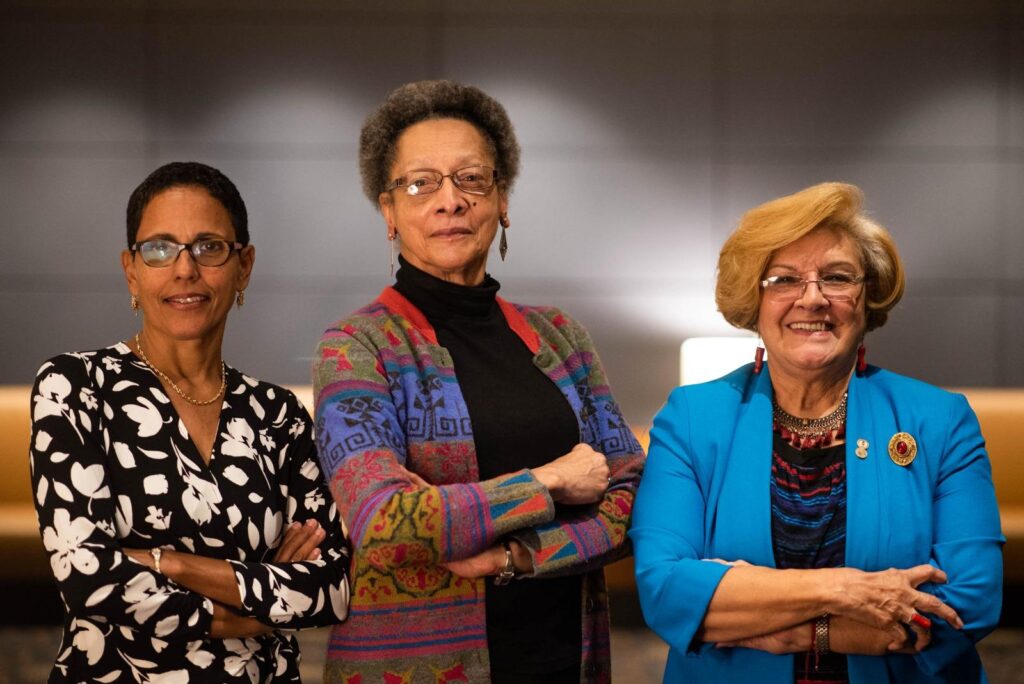
Image source: IACHR, “IACHR elects its Board of Directors for 2023”, available at: https://www.oas.org/en/IACHR/jsForm/?File=/en/iachr/media_center/PReleases/2023/037.asp.
On their trajectories, Commissioner Macaulay has been working at the IACHR since 2016 and she is known as a reference for the protection of women’s rights, being an honorable member of the Legacy Wall for Gender Justice for women’s rights advocates. As for Commissioner Troitiño, she has also been working at IACHR since 2016 and is currently in her second mandate. In addition, Commissioner Troitiño has an extensive academic background, including a degree in Philosophy, Letters, and Education, and Law and Political Science. She is a facilitator at the School of the Public Prosecutor’s Office for the New Accusatory Criminal System. On the other hand, Commissioner Clarke has been a member of the IACHR since January 2022. In her professional activities, Commissioner Clarke led UN Women Regional Offices in East and Southern Africa, Asia Pacific, the Caribbean, and Lybia. Additionally, she has been involved in civil society at national and international levels and is an activist for social justice and gender equality. This is the second historic all-woman board of directors and the first with all-woman from the Caribbean and Central American countries. The press release can be found here.
— On January 31, 2023, the IACHR granted precautionary measures to members of the Jesuit community in Cerocahui, Mexico, as the beneficiaries were suffering threats and aggressions from organized crime groups. The IACHR adopted Resolution 2/2023 by which it granted precautionary measures to eleven beneficiaries belonging to the Jesuit community of Cerocahui after acknowledging that they were in a situation at risk of irreparable harm to their rights. The members of the Jesuit community of Cerocahui, Tarahumara, engage in community work, both in evangelical work and in the defense and promotion of human rights in the Sierra Tarahumara. In the Tarahumara region, there is a strong presence of organized crime groups involved in drug trafficking, logging, and mining, among other activities, who also fight for control of the area, which is why there has been an increase in serious human rights violations since the so-called “war on drugs” began in 2006.
In this context, the beneficiaries have suffered threats and aggressions by organized crime groups, which has made it impossible for them to normally carry out their pastoral and community support activities in the area. In June 2022, two priests were murdered inside a church, which unleashed a context of stigmatization and delegitimization of the proposed beneficiaries after their denunciations and actions linked to the investigation of the murder of the Jesuit priests. Consequently, the IACHR ordered the State to adopt the necessary security measures to protect the life and personal integrity of the beneficiaries. Among such measures, the State must guarantee their safety and prevent acts of threats, intimidation, and violence by third parties; adopt protection measures that allow the proposed beneficiaries to continue carrying out their pastoral work without being subjected to threats, intimidation, harassment, and acts of violence against them; reach an agreement with the beneficiaries and their representatives on the measures to be adopted; and report on the actions taken to investigate the facts that gave rise to the adoption of this precautionary measure and thus prevent their repetition. The Resolution 2/2023 (in Spanish) can be found here and the press release here.
2. Inter-American Court of Human Rights (IACtHR)
The IACtHR is a regional human rights court responsible for applying and interpreting the Inter-American Convention on Human Rights and other human rights instruments in the region. Its main function is to decide cases on human rights violations committed by States that have accepted its jurisdiction.
News from the IACtHR:
— On February 28, 2023, the IACtHR decided that Chile violated the right to freedom of expression by criminalizing statements made against public officers for the illegal logging of the Patagonian cypress trees. The Patagonian cypress is one of the most valuable natural assets of Chile’s national heritage, and between 2003 and 2004, public discussion of the problem of illegal logging of these trees included allegations of public officials facilitating this crime. In this context, in 2004, Carlos Baraona Bray made several statements to the media, where he stated that Senator S.P. exerted political pressure on the authorities in charge of the Patagonian cypress conservation to maintain a situation of illegal occupation on a property in the Los Lagos Region. A few months later, Senator S.P. filed a criminal complaint against Mr. Baraona for allegedly committing the crimes of slander and serious insults with publicity. The Guarantee Court of Puerto Montt convicted Mr. Baraona as the author of the crime of serious insults through social media and sentenced him to 300 days of minimum prison and a fine of 20 monthly tax units, plus the accessory suspension from public positions or offices for the period of the sentence, with costs. On August 1, 2005, the case was dismissed.
Before the IACtHR, the IACHR stated that, regardless of the victim’s status as a human rights defender, his statements referred to the illegal logging of the cypress trees, which is related to the protection of the environment and constituted a debate of public interest. In this regard, the IACtHR concluded that the State violated Articles 13(1) and 13(2) (right to freedom of expression) to the detriment of the victim for, among other reasons, the existence of subjective, functional, and material elements in his statements to be relevant to the public debate and for the fact that, after being penalized for his statements, this generated fear of participating in such discussions and being penalized again, despite the dismissal of the case. The IACtHR also considered that there was a lack of legality of the restrictions imposed on freedom of thought and expression since the law applied to the case did not strictly delimit the conduct defined as a serious offense, in violation of Article 9 (principle of legality). Lastly, it was also decided that there was a violation of Article 25.1 (right to judicial protection) due to the fact that, although the victim could appeal the sentence, the appeal was ineffective as it was not carried out by the Supreme Court. The decision (in Spanish) can be found here and the press release here.
— On February 1st, 2023, the IACtHR found Trinidad and Tobago internationally responsible for the violation of the right to life due to the automatic imposition of the death penalty, among other human rights violations, in the “Kelvin Dial and Andrew Dottin” case. In 1997, a jury in Trinidad and Tobago concluded that Kevin Dial and Andrew Tottin were guilty of the crime of murder, for which reason they were sentenced to the mandatory death penalty, as provided in Article 4 of the Offences Against the Person Act. Regarding this decision, Dial and Dottin filed an appeal, which was rejected a few months later by the Court of Appeal. It was only after filling a constitutional motion in which they recalled the case “Charles Matthew v. The State” that established that the imposition of the mandatory death penalty was incompatible with the prohibition of inhuman or degrading punishment determined by the Constitution of Trinidad and Tobago, that the death sentences were commuted to life imprisonment. However, the detention conditions including the pre-trial detention and the detention following their conviction were inadequate. The cells were overcrowded, the inmates had almost no access to water, the artificial lights were on 24 hours a day, and there were no educational or recreational activities, among others.
In view of all of those facts, the IACtHR found a violation of Article 4.2 (right to life and conditions for the imposition of a death penalty) of the Convention given that the automatic imposition of the death penalty did not take into account that the crime should be characterized by different degrees of severity. In addition, the IACtHR found that Dial and Dottin were not provided with details of their charges promptly, which constituted a violation of Article 7.4 (right to anyone who is detained to be informed about the reasons for the detention) of the Convention. The IACtHR also declared a violation of Articles 8.2 c) (adequate time and means for the preparation of his defense) and 8.2 d) (right of the accused to defend himself personally or to be assisted by legal counsel of his own choosing) by, among other things, the prohibition to contact their lawyers at the time of their arrest. Furthermore, the IACtHR considered there was a violation of Article 5.2 (prohibition of ill-treatment) of the Convention considering the inadequate detention conditions the victims were subjected to. Finally, the IACtHR decided that regarding the impossibility of Mr. Dial to receive visits from his son, the State also violated Article 17.1 (right to protection of the family) of the Convention. The decision can be found here and the press release here.
Access Previous Issues:
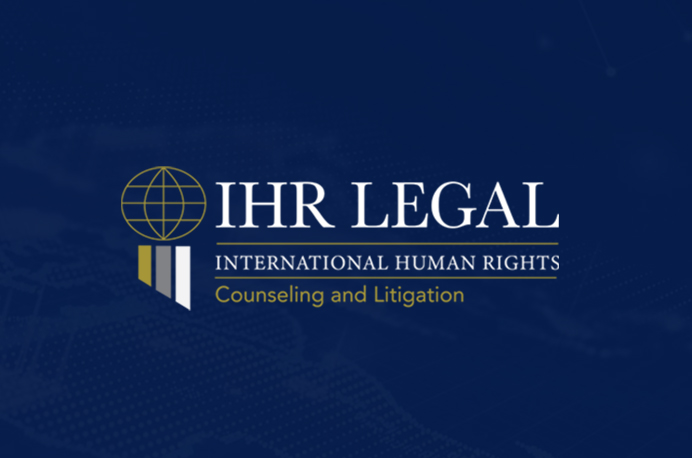
IHR LEGAL Newsletter – April to June 2021
Joint Statement on the eve of the International Day against Homophobia, Lesbophobia, Biphobia and Transphobia; Statement by UN High Commissioner for Human Rights, Michelle Bachelet, on the increase of human rights violations and abuses in Mali; Statement by the African Commission on Human and Peoples’ Rights on the occasion of the International Day in Support of Victims of Torture; and much more here.

IHR LEGAL Newsletter – January to April 2021
Statement on the George Floyd case by UN High Commissioner for Human Rights, Michelle Bachelet; IACHR Resolution on “COVID-19 vaccines in the framework of Inter-American Human Rights obligations”; African Commission on Human and Peoples’ Rights Resolution on the excessive use of force by agents of African States; and much more here.
